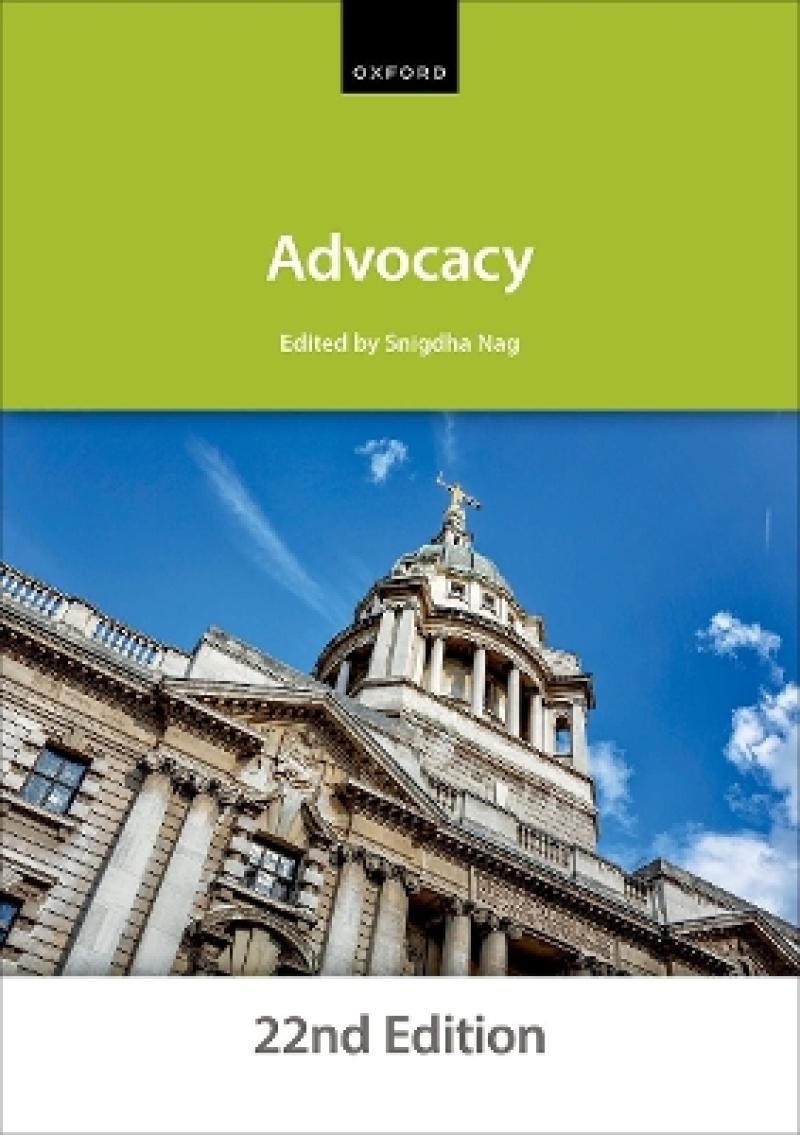Written by experienced advocates and advocacy trainers, Advocacy provides an excellent introduction to the skills and techniques required to be an advocate. Coverage includes guidance on making opening and closing speeches; planning and delivering examination-in-chief and cross-examination; questioning witnesses; as well as examples of specific questioning techniques which may be employed in practice. Additionally, authors highlight the ethical boundaries and rules within which an advocate must work.
Advocacy covers both criminal and civil court proceedings, and includes a number of how-to-do-it guides illustrating how particular applications should be made when in practice.
Les mer
The only manuals supporting students on Bar courses, providing detailed coverage of the key laws, rules and procedures alongside practical exercises.
Part I: Introduction
1: Introduction
2: The qualities of the advocate
3: Ethics, etiquette, and cross-cultural communication in the courtoom
Part II: The Basic Components for Application and Submissions
4: Recognising competence - advocacy skills criteria
5: Preparing the court
6: The content of your application
7: Structuring your application
8: Delivering your application
9: Persuasion
Part III: Preparing for Advocacy
10: Your voice and speech
11: Memory and recall
12: Note-taking
13: Modes of address
14: The advocates as storyteller
15: The course of a trial
Part IV: Opening and Closing a Case
16: Opening speeches
17: Closing speeches
Part V: Witnesses
18: The task ahead
19: Basic components for witness handling
20: Basic questioning skills
21: Examination-in-chief
22: Cross-examination
23: Re-examination
Part IV: How-to-do-it Guides
24: Using this Part of the manual
25: Skeleton arguments
26: Default judgments
27: Summary judgments
28: Interim payments
29: Applying for an injuction
30: Applications in the Chancery Division
31: The Companies Court
32: Possession cases
33: Applying for costs in a civil case
34: Employment Tribunals
35: Remands/adjournments
36: Bail application
37: Conducting a voir dire or 'trial within a trial'
38: Making a submission of no case to answer
39: Prosecuting a plea of guilty in the Crown Court
40: The plea in mitigation
Appendix: A criminal case: R v Heath
Les mer
The manual is edited by Snigdha Nag, Barrister, Senior Lecturer, The City Law School
Providing practical guidance on all typical courtroom transactions, the manual ensures the trainee barrister is fully equipped with the skills required to undertake successful advocacy in courts and tribunals
A variety of 'how-to-do-it' guides familiarize novice advocates with the operation of advocacy in both civil and criminal courts
Illustrations of specific questioning techniques show how to successfully conduct examination-in-chief and cross-examination
A chapter on drafting skeleton arguments shows novice advocates how to construct strong, persuasive arguments in support of their case
Diversity and inclusion principles are fully recognised within the coverage of ethics, etiquette, and cross-cultural communication, enabling students to develop the skills necessary to practice with consideration of these important issues
The significance of video calling platforms and home working is acknowledged throughout, ensuring students' understanding of process is compatible with modern working practices
Also available as an e-book with functionality, navigation features, and links that offer extra learning support
Les mer
Produktdetaljer
ISBN
9780198923275
Publisert
2024
Utgave
22. utgave
Utgiver
Vendor
Oxford University Press
Vekt
840 gr
Høyde
293 mm
Bredde
207 mm
Dybde
19 mm
Aldersnivå
UU, UP, 05
Språk
Product language
Engelsk
Format
Product format
Heftet
Antall sider
376
